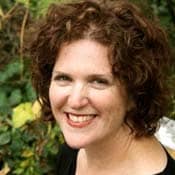The call to influence left me in a place of no influence. Like Moses in Midian, Jesus in the wilderness, or Paul in Asia, the call to lead was quickly followed by years of no one to lead.
I was pregnant with my first child when I began to find the strength of my voice in a church. She was just a toddler when I found I had a passion for theology and a mind for innovative ministry. I wrote my first sermons in the midst of potty training. I delivered them in maternity pants during my second pregnancy. My mind was filled with words like postmodernity and epistemology while I sat with moms who were discussing attachment parenting and sleep schedules. My availability to attend conferences and network with others who were talking about postmodernity and epistemology was limited by the demands of breastfeeding and the lean financial resources of a young family.
All theological exploration should be undertaken wearing a hard hat or maybe full body armor. In the spaces between feedings and in early morning coffee escapes, the boundaries I had lived within began to explode. I didn't intend to make waves, but my enthusiasm for what I was discovering began to threaten and disrupt church and family systems. I needed a new space to explore—a church setting where I could explore without being reactive, where my spirit was nurtured along with my mind. Thank God for my husband who saw my call, shared my pain, and journeyed with me as we left everything familiar, any hint of influence that I had, and started in a church system that was completely foreign to us, where we knew almost no one.
I fell backward into the Presbyterian church. The church we chose to heal in was a vibrant urban Presbyterian congregation. The local Presbyterian seminary happened to have a preschool attached to it. Seminary didn't begin as a call to pastoral ministry but as a response to a more general call to think more deeply about my own faith with a general sense my journey would some day create space for the journey of others. Along the way, I fell in love with the phrase, "Reformed and always reforming," and Karl Barth's idea that the Reformed tradition is a river we step into, not a fixed set of principles. I wanted to float in that river—the stream that was held by the banks of the God-In-Community whose power was unstoppable love. And the Presbyterians nurtured that desire and they affirmed me as a leader.
My husband visited me in my office last week and the craziness of my current life as a pastor lifted for just a moment to reveal the contrast that our married life has contained. This man has seen me on the days where I was changing diapers and reading theology. He held me while I cried tears filled with dark confusion over where my call would take me. And here he was in my office. One wall is filled to capacity with the books that hold the academic learning of my hidden years between call and fulfillment. My desk is stacked with papers to attend to. My e-mail inbox filled with answers needing replies. I looked at my husband in disbelief and said, "Can you believe this is my office? Can you believe I'm a pastor?" The trappings of an office mean nothing really. Influence has nothing to do with an office. It is just a visible sign of a long journey. Holding a call through a dark tunnel and coming out on the other side.
On my playlist is a group of songs I called "Gravity." It includes the song from Wicked, "Defy Gravity," Beyonce's Dreamgirls torch song, "Listen," and Alison Krauss's ballad about leaving home called "Gravity" among others. These songs sustained me for years because there was so much to defy, so many expectations to shed, so much to unlearn after a lifetime of learning a woman's "proper place." Like Elphaba rising above the stage in Wicked, I was through "accepting limits" on who I could be. Trusting God's call felt like defying gravity in those quiet years of spiritual transition and school. But those songs hold less for me these days. The time has come to stop fighting for myself and extend a hand to lift others who are seeking their place of influence.
I can't tell you how many times I have hoped that other women would do this for me. I still walk into meetings with other pastors hoping that women who have been doing this job much longer will reach out to the new girl on the block and show me the ropes. It hardly ever happens. Instead, I find myself listening to them. I don't mind, but I long for strong and wise female mentors. Jo Saxton, in her new book More Than Enchanting, is right when she says so many women never make this move. Women, by large majority, find places of influence after undergoing years of being overlooked and hidden. It is easy to make one's life story about the rising out of obscurity. While the strength gained in such a struggle is invaluable and admirable, true stewardship of such a struggle is shown when we stop seeking our own significance and look at who we can open doors for, who needs an encouraging word and permission to use their voice. Becoming a woman of influence is ironically letting go of all that it took to get that influence in the first place, following Jesus who did not grasp at being God but emptied himself, taking the form of a servant.
3/11/2012 5:00:00 AM





